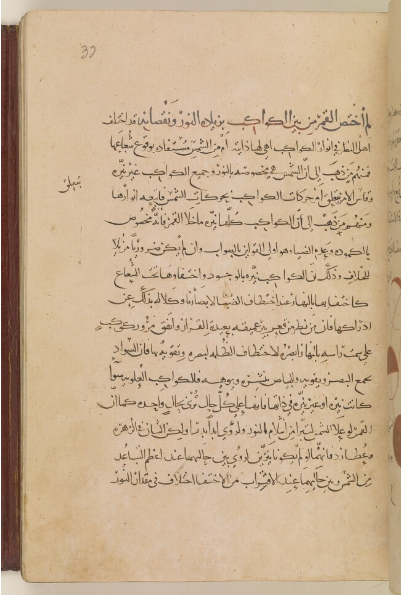Using AI to control energy for indoor agriculture
30 September 2024
Published online 11 November 2014
The Qatar Digital Library opens up the rich history of the Gulf region to the public.

© British Library / Qatar Digital Library
Many rare and precious documents were previously only available to researchers who physically visited the British Library to browse archives in need of re-organization.
The bilingual digital library is the first outcome of a 10-year planned collaboration between the British Library, the Qatar Foundation and the Qatar National Library. Around 475,000 of the digitised papers come from the British Library collection of India Office Records and 25,000 are medieval Arabic manuscripts. Those include archives, maps, manuscripts, postcards, illustrations and photographs.
The material has been accumulated by the British Library over many years. “Some were donated, some purchased from private collections, some collected as part of the British record at the time,” said the head of the British Library-Qatar Foundation Partnership, Richard Gibby.
Formed in 2012, the team behind the Qatar Digital Library has so far digitised between 25% and 30% of the documents, which are now available online. Gibby estimates the full range of material would be uploaded and available online by the end of the year.
The collection highlights the influence Islamic scholars had on science, medicine, geometry, astronomy and mathematics. One of the manuscripts, for instance, includes a handheld mechanical calendar by Persian mathematician Abu Rayhan Al Biruni, born in 973. Several of the tomes were also Arabic translations from earlier text that would not have survived otherwise, such as Euclid’s Data, or Kitab Al Mu’tayat, translated into Arabic in the 10th century by Ishaq Ibn Hunayn.
Qatar Foundation joined the project as part of its efforts to preserve Islamic heritage and educate people about their country and region, according to Saadi Al Said, associate director of administration and planning at Qatar National Library. “By providing knowledge to people, you’re supporting the move towards a knowledge-based culture and economy.”
The library, however, is not only aimed at the general public, but also at students and researchers.
The collected 475,000 pages go back to when Britain had colonial administration over the Gulf region during the mid-1800’s and up until 1951.
Gibby explains that most of the material comes from Gulf countries including Qatar, Bahrain, Kuwait, Iraq, Iran, Saudi Arabia and the United Arab Emirates, but there are pieces from Egypt and other countries in the Middle East as well as Britain and India.
These include a variety of maps, leaflets and a rich array of Arab scholars’ translations of classic Greek, Persian and Sanskrit texts on different subjects, including astronomy and medicine.
“Some [documents] are interesting for their historical importance, others because they give insight into what life was like 200 years ago and the culture and so on,” says Gibby.
Some discoveries were surprising even to the British Library’s team. One of those was a piece of British colonial propaganda written on the back of a poster documenting financial accounts from Bahrain during the Second World War. The poster went unnoticed for 70 years until it was being prepared for digitisation.
Although the Qatar Foundation funds the project, the British Library is in charge of digitising and archiving the material as well as providing texts to contextualise significant material on the website.
“We have a team of experts in the history of the region in Arabic, in archives, in the Gulf history, maps, oral history, sounds, music,” explains Gibby. Those authorities on subjects explain the social, political and economic conditions in which documents were written, to give the average reader better understanding of the material.
Once the digitisation phase is complete, Qatar will host the material on their own servers and be in charge of further development and maintenance of the website.
The state has some history of media control, according to media watchdog, Reporters Without Borders and OpenNet Initiative. Gibby, however, was optimistic about access and transparency. “Right from the beginning, there has been discussions and promises from both sides and we have no concern about that,” says Gibby. “There haven’t been any attempts to do that.”
Qatar Foundation and National Library will also continue to expand the content in the future. “New partnership[s] will come in the future for this portal,” says Al Said. “The aim is to offer an extensive collection from various sources to anyone in the world for free.”
doi:10.1038/nmiddleeast.2014.264
Stay connected: